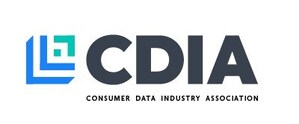
Consumer Data Industry Association Statement Regarding Ride Sharing Background Checks
WASHINGTON, April 17, 2017 /PRNewswire-USNewswire/ -- The Consumer Data Industry Association (CDIA) today released the following statement on the information-based background checks used by ride sharing companies such as Lyft and Uber, known as transportation network companies. Earlier this month, the Massachusetts Department of Public Utilities released a flawed report on background screenings that relied upon data findings that could violate consumer protections under the Equal Employment Opportunity Commission, the Fair Credit Reporting Act, and state law if a non-government agency made those same findings. The following statement is attributable to Eric J. Ellman, Interim President and CEO of CDIA, the trade association that includes the nation's leading criminal background check companies.
"The Commonwealth of Massachusetts has decided transportation network companies may see only part of an applicant's publicly available criminal history in the consumer reports that businesses use for hiring and contracting. Massachusetts law prohibits consumer reporting agencies from reporting criminal convictions that are more than seven years old. CDIA believes that all public criminal information should be available in a consumer report—as it is to the Department of Public Utilities—so any Massachusetts business can make a fully informed evaluation of an applicant's history. Let's get all the facts on the table so all businesses can evaluate them fairly and legally.
Under Federal law, businesses are expected to narrowly tailor their employee and contractor screening criteria to ensure that disqualifying crimes are job-related and consistent with business necessity. Here, the state disqualified applicants based on information that its own law says is too old for private employers to consider. Where screening criteria are drawn too stringently, and an applicant has limited rights to appeal, employment and contracting opportunities may be lost and illegal discrimination may result.
Existing federal and state law requires background checks done by the private sector to provide the full measure of consumer protections. In addition to offering more protection for transportation network company drivers, private-sector criminal background checks, subject to the FCRA, Title VII, and Massachusetts law strike a balance between resident safety and worker protections.
Comprehensive, private-sector, name-based background checks access information from multiple sources and multiple states, with current disposition information that many state repositories lack. According to the U.S. Department of Justice, the FBI's voluntary fingerprint database contained only 75 percent of all crimes committed in the U.S. Even more important, while it contained arrest information, it did not include the final dispositions of more than half of those in the database.
Advances in technology and record-keeping mean there is more information available about applicants than ever before; companies that perform name-based criminal background checks take advantage of all that information to build a complete picture that fingerprint background checks simply cannot match. "
ABOUT THE CONSUMER DATA INDUSTRY ASSOCIATION: CDIA is an international trade association of more than 120 consumer reporting agency members, including the leading background check companies. Its mission is to enable consumers, media, legislators and regulators to understand the benefits of the responsible use of consumer data which creates opportunities for consumers and the economy. CDIA members provide businesses with the data and analytical tools necessary to manage risk. They help ensure fair and safe transactions for consumers, facilitate competition and expand consumers' access to a market which is innovative and focused on their needs. Their products are used in more than nine billion transactions each year.
SOURCE Consumer Data Industry Association






Share this article